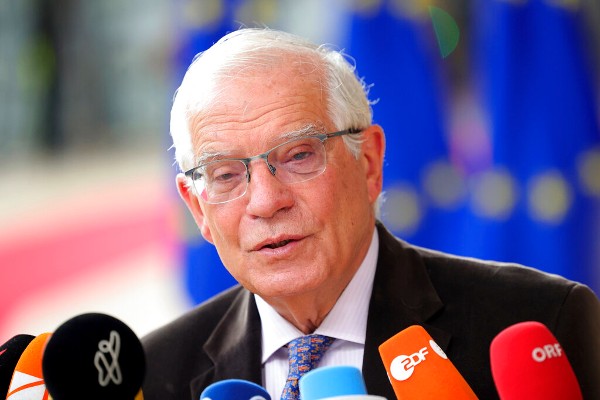Nuclear talks in Vienna poised to resume this week, fueling major concerns in Israeli security establishment.
By World Israel News Staff
Negotiations in Vienna aimed at restoring the 2015 Iran nuclear deal are set to resume this week, after Tehran and the European Union agreed to reboot talks.
On Saturday, Iranian Foreign Minister Hossein Amirabdollahian held a joint press conference in Tehran with Josep Borrell, High Representative of the European Union for Foreign Affairs and Security Policy.
At the press conference the two announced that talks between the EU and Iran will restart this week.
“The coming days means the coming days, I mean quickly, immediately,” Borell said, The Associated Press reported, urging the Biden administration to join the rebooted talks.
“Negotiations must resume, and this is a decision that must be made in Tehran and Washington.”
However, White House National Security Council spokesperson John Kirby declined to comment on the negotiations’ status.
“But there’s nothing changed about our position that a nuclear deal is the best way to prevent Iran from achieving nuclear weapons status,” Kirby said. “We want to get them back into compliance.”
The talks in Vienna collapsed in March, with Iran quickly moving to curtail international surveillance of its nuclear program and to bolster its uranium enrichment operations.
In early June, Iran deactivated several surveillance devices used by United Nations inspectors to monitor Iran’s uranium enrich operations, drawing condemnation from the International Atomic Energy Agency.
The Israeli government praised the IAEA earlier this month for its censure of Iran, but Israel’s security establishment now fears the renewed talks in Vienna could lead to a new agreement which could pose a serious threat to the Jewish state.
“If it will be signed, the current deal would be very bad for Israel,” a senior Israeli security official told Israel’s Channel 12.
“It would be limited to two and a half years, and it will allow Iran to develop its economy, thus giving it the ability to significantly grow its military capabilities across the Middle East.
Israel fears that the Biden administration is likely to sign onto the new nuclear agreement in November, following the midterm elections.
President Joe Biden’s meetings with Israeli and Saudi leaders during his Middle East trip next month are expected to focus heavily on the resumption of talks in Vienna.
Israel’s primary concern with the emerging nuclear deal is that it will give Iran less than a year of breakout time. Unconfirmed reports indicate the agreement will set the amount of time Tehran needs to produce the amount of highly enriched uranium needed for a nuclear bomb to four to six months.
While uranium needs to be only 3.67 percent pure to generate nuclear power, Iran has enriched its uranium stockpile to 60%, a degree of purity that no country without an atomic weapon has pursued. A nuclear bomb requires uranium to be enriched to 90% purity.
Israel also fears that a premature lifting of sanctions will enable Tehran to boost its support for its terror proxies across the Middle East.
The controversial Joint Comprehensive Plan of Action (JCPOA) of 2015 promised Iran economic incentives in exchange for limits on its nuclear program. Former president Donald Trump withdrew the U.S. from the agreement in 2018. Negotiating a return to the nuclear agreement is a key foreign policy goal of U.S. President Joe Biden.
Israel, Saudi Arabia and the Gulf states, oppose an American return to the JCPOA agreement.





